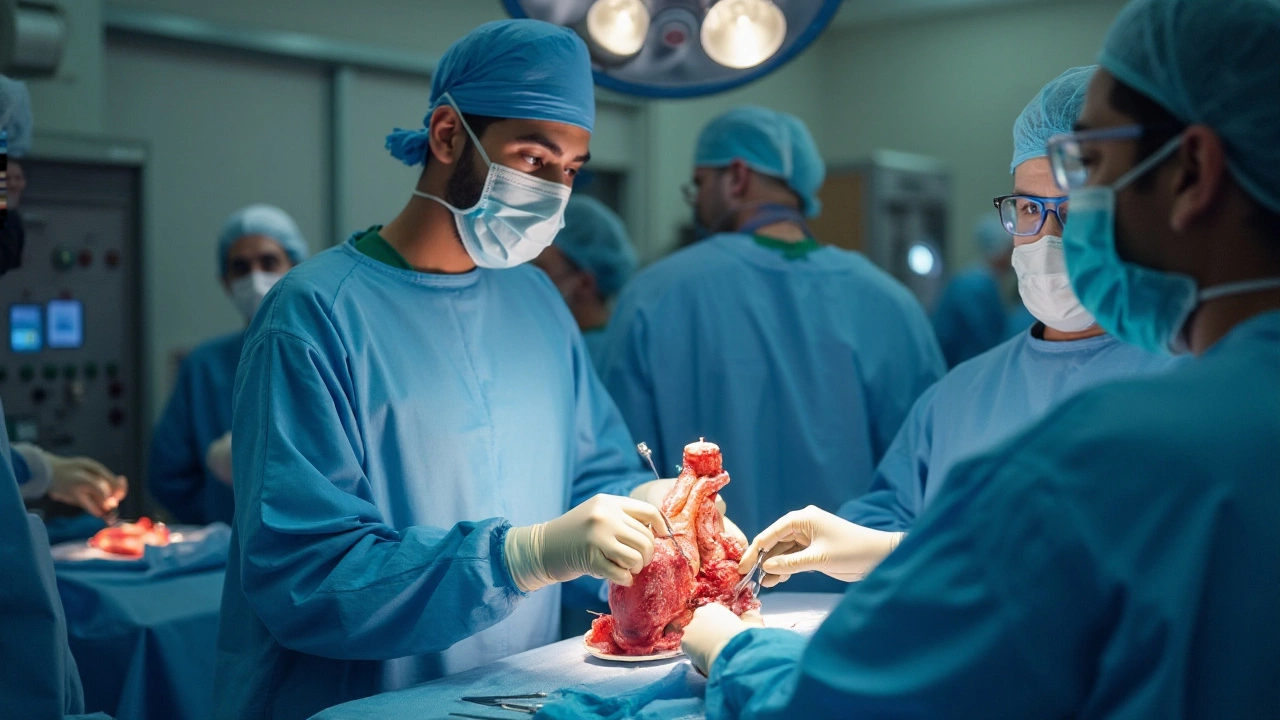Heart surgeries vary in complexity and risk. Some require exceptional skill due to the intricacies involved, such as heart transplants, coronary artery bypass grafting, and valve replacements. These surgeries demand a combination of expertise, precision, and sometimes innovative approaches. Understanding what makes them so challenging can provide insight into the advancements and dedication in the field of cardiac surgery.
Read MoreMost Difficult Heart Surgeries: What Makes Them Tough and How to Recover
Thinking about heart surgery can be scary, especially when you hear about the really tough ones. Procedures like heart transplants, aortic root replacements, or multiple‑bypass operations are called “difficult” for a reason. They need a super‑skilled team, advanced equipment, and a patient who’s ready for a long road to recovery. In this guide we’ll break down why these surgeries are hard, what you can expect, and how to get through the healing phase with confidence.
Why Some Heart Surgeries Are Extra Challenging
First up, the technical side. Surgeries that involve the aorta or the heart’s main valves require the surgeon to work on tiny, moving structures while the patient is on a heart‑lung machine. Any tiny mistake can affect blood flow to the whole body. Second, the patient’s health matters a lot. People needing a transplant or a complex valve repair often have other illnesses – diabetes, kidney problems, or lung disease – that make anesthesia riskier and healing slower.
Here are three of the toughest heart ops you’ll hear about:
- Heart Transplant: Replaces a failing heart with a donor organ. Matching the donor, controlling rejection, and managing lifelong medication make it a high‑risk case.
- Aortic Root Replacement (David Procedure): Fixes a weakened section of the aorta near the heart valve. It demands precise sewing and often uses a synthetic graft, which can be tricky.
- Multiple‑Graft Coronary Bypass (Five‑plus grafts): Bypasses clogged arteries with veins or arteries from other parts of the body. The more grafts, the longer the surgery and the higher the chance of complications.
Preparing for a Difficult Heart Surgery
Good preparation can lower the odds of problems. Talk to your surgeon about what the operation will involve – ask about the length, the type of anesthesia, and the chances of needing a blood transfusion. Get a full health check: blood work, chest X‑ray, and any scans the team recommends. If you smoke, quit at least two weeks before the date; if you’re overweight, losing a few pounds can improve lung function and wound healing.
Don’t forget the mental side. Studies show that patients who visualize a smooth recovery, keep a positive outlook, and have a strong support network tend to bounce back faster. Write down questions, bring a family member to appointments, and consider a short session with a counselor if anxiety feels overwhelming.
When the day arrives, follow the pre‑op instructions to the letter – no food or drink after midnight, take only the meds your doctor approved, and wear comfortable clothing for the hospital stay.
What Happens After the Surgery?
Most difficult heart surgeries mean a longer stay in the intensive care unit (ICU). You’ll be on a ventilator for a few hours, and the team will closely watch your heart rhythm, blood pressure, and incision site. Pain control is key – don’t be shy about asking for meds; uncontrolled pain can slow breathing and raise infection risk.
Typical recovery milestones:
- Day 1‑3: Breathing exercises, gentle leg lifts, and sitting up in a chair.
- Week 1‑2: Light walks around the ward, beginning of cardiac rehab classes.
- Month 1‑3: Gradual return to household chores, continuing guided exercise program.
- Month 3‑6: Full cardiac rehab, possibly returning to work if your job isn’t physically demanding.
Follow your doctor’s medication plan exactly – especially blood thinners, which prevent clots after valve work or transplant. Keep all follow‑up appointments; they let the team catch issues early, like graft narrowing or early rejection signs.
Nutrition matters too. Aim for a heart‑healthy diet: lean proteins, plenty of vegetables, whole grains, and low‑sodium foods. Hydration helps kidney function and reduces fatigue.
If you notice fever, wound drainage, shortness of breath, or unusual swelling, call your surgeon right away. These could be signs of infection or fluid buildup that need prompt treatment.
Finally, celebrate the small wins. Getting out of bed, walking a short distance, or cutting down on pain meds are big steps forward. Recovery from a difficult heart surgery isn’t a race; it’s a steady climb. With the right prep, a solid support team, and a clear plan for rehab, you can get through it and enjoy a healthier heart.





